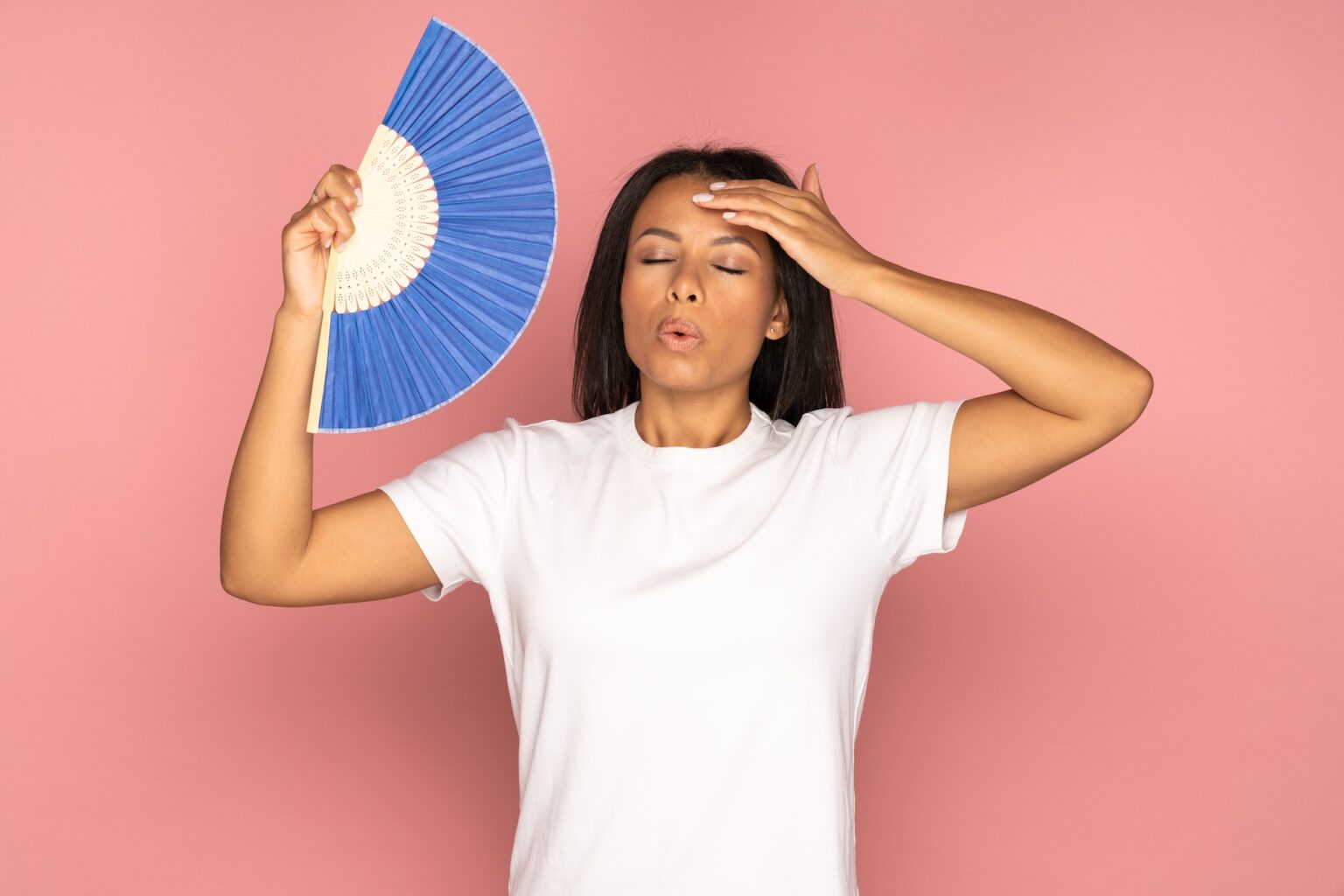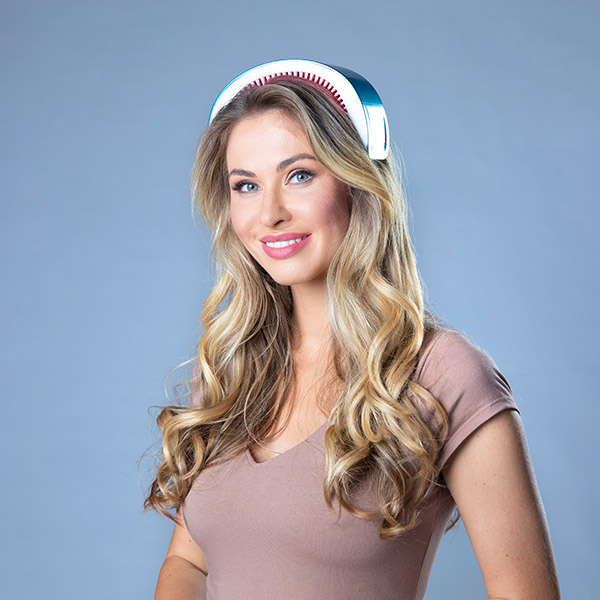Menopause is a natural phase in life, but it often brings along uncomfortable symptoms, like hot flashes and night sweats. Hot flashes are a sudden feeling of heat in the upper body that can disrupt your daily routine and sleep cycle. They’re often a sign of hormonal changes, particularly as estrogen levels drop. At night, these hot flashes can turn into night sweats, leaving you feeling hot and chilly at the same time.
There are various ways to relieve these symptoms. Hormone therapy is frequently recommended and considered effective for reducing the frequency and severity of these flashes. Medications like fezolinetant, also known by the brand name Veozah, are designed to specifically target menopause-related symptoms. You can also explore supplements and lifestyle changes, such as diet adjustments, like incorporating foods known to fight hot flashes, and adopting new cooling technologies to find quick relief.
Understanding these symptoms can help you manage them more effectively. In some cases, hot flashes might signal other health issues, such as certain types of cancer, so it’s important to monitor their patterns. Try different methods to see which relieves your symptoms best, and consult with healthcare professionals to tailor a plan that fits your needs.
Understanding Menopause
Menopause is a natural biological process that marks the end of your menstrual cycles. It often brings about various symptoms, with hot flashes being one of the most common and significant.
What Is Menopause?
Menopause is the point in your life when you stop having menstrual periods for 12 consecutive months. It typically occurs between ages 45 and 55. During this time, your ovaries reduce the production of hormones like estrogen and progesterone, leading to the cessation of menstruation.
This change is a normal part of aging. Symptoms can vary greatly among individuals, and include mood changes, sleep problems, and physical changes such as weight gain. Lifestyle adjustments, dietary changes, and sometimes medication can help manage these.
Significance of Hot Flashes
Hot flashes are sudden feelings of intense heat, primarily in the upper body. They are a hallmark of menopause, often accompanied by sweating and a rapid heartbeat. These can be especially bothersome at night, sometimes resulting in night sweats that disrupt sleep.
Hot flashes occur due to changes in your body’s thermostat, linked to decreased estrogen levels and affect a significant number of women during menopause. Treatments can include hormone therapy and medications like clonidine and Fezolinetant. Various lifestyle modifications can also help provide relief if symptoms are mild.
Recognizing Hot Flash Symptoms
Hot flashes are a common symptom of menopause and can vary widely in their intensity and duration. Learning to recognize these symptoms, including their characteristics and variability, can help you better manage them.
Characteristics of Hot Flashes
Hot flashes typically last between one and five minutes. You might suddenly feel a wave of warmth spreading across your body, especially in your upper half. Accompanying this sensation, sweating and a flushed appearance are common. Some people experience a rapid heartbeat or a feeling of anxiety during an episode. While hot flashes are often linked to menopause, they can affect each individual differently. Understanding these features can assist in discerning when such symptoms might be occurring.
Identifying Night Sweats
Night sweats share many characteristics with hot flashes but occur during sleep. You might wake up drenched in sweat, leading to disturbed sleep. In addition to the sensation of excessive heat, some individuals may experience chills or shivering. These symptoms can often lead to a cycle of waking and cooling down, affecting sleep quality. Recognizing the signs of night sweats will help you identify possible triggers and find ways to mitigate them for better nighttime comfort.
Variability of Hot Flashes
Hot flashes can be mild and infrequent or intense and frequent. Some people experience them for only a few months, whereas others can have them persist for several years. Menopause often begins in the late 40s to early 50s, and the duration of hot flashes can vary greatly. If you notice symptoms beginning as your menstrual cycle becomes irregular, this could be a sign of perimenopause. Each person’s experience is unique, and understanding the variability of symptoms can guide you in seeking appropriate interventions or treatments.
Relief and Management Strategies
Managing menopause hot flashes can be challenging, but several strategies can help. Lifestyle changes and dietary adjustments play significant roles in providing relief. These methods focus on reducing symptoms and preventing hot flashes before they start.
Lifestyle Adjustments for Relief
Regular exercise can help reduce the frequency and severity of hot flashes. Aim for activities like walking, swimming, or yoga. These activities not only improve your overall well-being but also can stabilize your mood.
Stress-reducing techniques like deep breathing, meditation, and tai chi are also beneficial. These practices can help calm your body and mind, potentially lessening hot flash occurrences.
Keeping your environment cool is essential. Use fans, dress in light layers, and maintain a comfortable room temperature. This can prevent overheating, which often triggers hot flashes, particularly at night.
Dietary Considerations
Certain foods can help alleviate hot flash symptoms. Incorporate cooling foods such as fruits and vegetables into your meals. Hydration is crucial, so drink plenty of water daily.
Soy products, like tofu and soy milk, contain phytoestrogens which may mimic estrogen and provide some relief. Consider adding these to your diet. However, consult with a healthcare provider before making significant dietary changes.
Avoid triggers such as spicy foods, caffeine, and alcohol. These can exacerbate hot flashes and make management more challenging. Keeping a food diary might help you identify specific triggers and adjust your diet accordingly.
Medical Interventions
When managing menopause hot flashes, treatment can involve different methods. You might explore medications prescribed by healthcare providers or consider new technologies designed to address these symptoms.
Prescription Medications
For relief from menopause hot flashes, several prescription options are available. Hormone therapy is one of the most effective treatments, aimed at balancing estrogen levels. But it’s not suitable for everyone. For non-hormonal options, medications like Clonidine, primarily used for high blood pressure, might offer some relief. It comes in pill or patch form but may cause dizziness and dry mouth.
As mentioned, another non-hormonal medication is Fezolinetant (Veozah), recently approved by the FDA. This drug specifically targets severe vasomotor symptoms linked to menopause and is designed to reduce hot flash frequency and severity. Discussing these options with your healthcare provider will help tailor treatment to your specific needs.
New Technologies
Innovative solutions are emerging to help manage hot flashes. One promising area is neuromodulation devices. Gadgets such as the Oura ring, can regulate body temperature through nerve stimulation, offering potential relief without medication. They work by altering nerve signals responsible for regulating body heat, reducing incidence and intensity of hot flashes.
Some devices are small and discreet, worn on the wrist or neck, providing comfort and ease. Research in this area continues, focusing on enhancing effectiveness and accessibility. Before adopting these technologies, it’s essential to consult with a healthcare professional to ensure suitability for your situation.
Supplemental Support
Combating menopause symptoms can be made easier with the right supplements. They aim to reduce hot flashes and improve overall well-being during this time. Choosing supplements that work for you can aid in managing symptoms like night sweats and hormonal changes.
Natural Supplements
Various natural supplements may help with menopause symptoms. Black cohosh is often mentioned for its potential to reduce hot flashes and other menopausal symptoms. It is derived from a plant and thought to help balance hormones.
Evening primrose oil is another supplement used to address hot flashes. It contains gamma-linolenic acid, which may help with hormonal regulation. St. John’s wort is used for mood swings and depression associated with menopause. However, consult with a healthcare provider before using these, as they can interact with medications.
Vitamins and Minerals
Certain vitamins and minerals are important during menopause. Vitamin E is often recommended for reducing the intensity of hot flashes. It is an antioxidant that may help manage stress and hormonal changes.
Calcium and Vitamin D are critical for bone health, which can be affected during menopause. Magnesium plays a role in reducing night sweats and can improve sleep quality. B vitamins help combat fatigue and maintain energy levels throughout the day. Ensuring an adequate intake of these can support overall health during menopause.
Understanding the Biological Mechanism
Hot flashes are often associated with changes in your body during menopause. They are influenced by hormonal shifts and disruptions in thermoregulation. Understanding these can help in managing hot flashes effectively.
Hormonal Changes and Effects
During menopause, your body undergoes significant hormonal changes. Estrogen levels drop, which can lead to a range of symptoms, including hot flashes. This decrease in estrogen affects the hypothalamus, a part of the brain responsible for regulating body temperature.
Hormones like estrogen and androgens play a crucial role. Androgens contribute to estrogen synthesis. When these hormone levels are not balanced, it can lead to vasomotor symptoms, such as hot flashes.
Hormonal changes also affect neurotransmitters in the brain. These include serotonin and norepinephrine, which are important for regulating body temperature and mood. Therefore, an imbalance can lead to the sensations experienced during hot flashes.
The Science of Thermoregulation
Thermoregulation involves keeping the body’s core temperature stable. During a hot flash, your body responds as if it’s overheating. This can happen because of a reduced thermoneutral zone, making you more sensitive to small temperature changes.
Your body reacts by triggering mechanisms like peripheral vasodilation and sweating. Peripheral vasodilation increases blood flow to the skin, causing heat to dissipate. This leads to the flushing and warmth typical of hot flashes.
The hypothalamus plays a central role in thermoregulation. When hormone levels drop, it can misinterpret signals, causing hot flashes. This response is a way to cool the body quickly, although it often occurs unnecessarily during menopause.
Lifestyle and Environmental Factors
Hot flashes can be influenced by stress levels and environmental conditions. Both can play a significant role in the frequency and intensity of these symptoms. Understanding these factors can help in managing hot flashes effectively.
Stress and Hot Flashes
Stress is a major trigger for hot flashes and night sweats. When you’re stressed, your body releases adrenaline and cortisol, which can increase your body’s temperature. This, in turn, can lead to more frequent and intense hot flashes.
Environmental Triggers
Certain environmental factors might exacerbate hot flashes. These can include warm temperatures, hot drinks, caffeine, alcohol, and spicy foods. Identifying and avoiding these triggers can provide some relief.
Keeping your living space cool is crucial. Use fans, air conditioning, or keep windows open to maintain a comfortable temperature. Dressing in layers can also help, allowing you to remove clothing if you start feeling too hot.
Consider using cooling pillows or sheets at night to combat night sweats. Choosing breathable fabrics like cotton can help keep your body cool and reduce discomfort. Recognizing and adjusting to these triggers can help make hot flashes more manageable.
Exploring Alternative Remedies
When it comes to managing menopause hot flashes, exploring natural and non-invasive remedies can provide relief. This section highlights herbal treatments and mind-body techniques that are beneficial for reducing the frequency and intensity of hot flashes.
Herbal Treatments
Herbal supplements can offer relief from hot flashes. Some herbs, like black cohosh and red clover, contain phytoestrogens. These compounds mimic estrogen in your body and may help balance hormones, potentially easing hot flashes.
It’s important to choose supplements carefully. The effectiveness can vary, and some supplements might interact with medications. Taking herbs like black cohosh has shown promising results, but consulting with a healthcare professional before starting any supplement is wise.
Aside from black cohosh and red clover, evening primrose oil is another option. While some people find relief using these herbal options, scientific support varies, so personal experience might differ.
Mind-Body Techniques
Mind-body techniques are another way to manage hot flashes. Practices such as yoga, meditation, and tai chi focus on stress reduction and mindfulness. This can help decrease the intensity and frequency of hot flashes by promoting relaxation and mental well-being.
Cognitive Behavioral Therapy (CBT) is also an effective approach. It teaches you how to alter thoughts and reactions to stress, which can help reduce the severity of hot flashes.
Besides CBT, acupuncture has been studied for its potential to alleviate hot flashes. Some research indicates it can reduce hot flashes significantly, offering a non-drug treatment option. Engaging in these practices may not only help with hot flashes but also improve overall mental and physical health.
Complications and Related Conditions
Hot flashes can impact your daily life and may be a sign of other health conditions. Understanding these aspects can help you manage them more effectively.
Hot Flashes and Sleep Disruption
Hot flashes often occur at night, leading to sleep disruption. Night sweats can wake you up multiple times during the night, affecting your sleep quality and leaving you tired during the day. This ongoing lack of sleep can result in fatigue, irritability, and difficulty concentrating.
The constant break in your sleep cycle might also impact your mood, causing feelings of anxiety or depression over time. Managing nighttime hot flashes can involve lifestyle changes, such as keeping your bedroom cool or wearing breathable sleepwear. Treatments like hormone therapy have been shown to help with sleep disturbances by reducing hot flashes, but it is essential to discuss this with your healthcare provider to weigh the benefits and risks appropriately.
Hot Flashes as a Symptom of Other Conditions
Hot flashes are commonly linked to menopause, but they can also be a symptom of other medical conditions. For instance, certain cancers can cause hot flashes, making it important to monitor other symptoms and see a doctor if you have concerns.
Some medications, such as those for high blood pressure, may also trigger hot flashes as a side effect. Anxiety and thyroid issues can contribute as well. Identifying the root cause of your hot flashes is crucial for effective management. Speaking with a healthcare professional about your symptoms can help determine if your hot flashes are related to menopause or another condition, guiding appropriate treatment planning.
Research and Future Directions
Research on menopausal hot flashes is expanding to find effective treatments. New drug development and emerging technologies are key areas of focus, offering hope for those seeking relief.
Ongoing Studies
Researchers are currently examining various treatments for hot flashes related to menopause. One promising area is the use of non-hormonal medications like fezolinetant, which has been approved by the FDA to tackle these symptoms. This drug is designed to reduce the frequency and severity of hot flashes by targeting specific receptors in the brain.
Studies also explore the potential of cognitive-behavioral therapy to assist women in managing symptoms. This approach can help women build coping strategies to mitigate the distress caused by hot flashes. Scientists are looking into dietary supplements, such as phytoestrogens, which are plant-based compounds that may mimic estrogen.
Potential Innovations
New technologies aim to provide innovative solutions for those experiencing hot flashes. Wearable devices are being tested to monitor body temperature and alert users before a hot flash occurs. This could allow you to take preventive action, like adjusting your environment or using cooling techniques.
Additionally, researchers are exploring virtual reality and biofeedback as tools to help you manage stress levels. Reducing stress could lessen the frequency and intensity of hot flashes. These technologies focus on personalized interventions, offering customized solutions based on individual symptoms and needs.
Hot flashes and night sweats are some of the most common yet disruptive symptoms of menopause. While they can be challenging, a variety of treatments and lifestyle changes can offer relief. From hormone therapy and innovative medications like fezolinetant to natural remedies and cooling technologies, there are numerous options to explore. Managing triggers, adopting a balanced diet, and incorporating stress-reducing practices can further enhance your comfort. Remember, every individual’s journey is unique—partner with a healthcare provider to create a tailored plan that works best for you. With the right strategies, you can navigate menopause confidently and regain control over your daily life.










